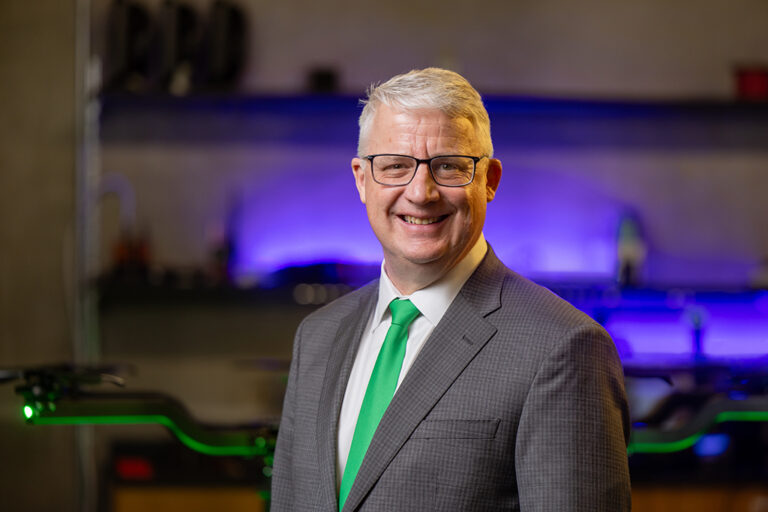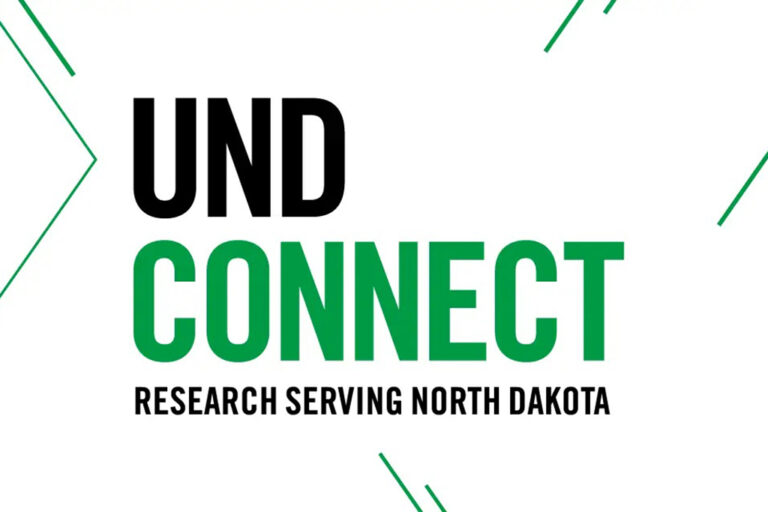Growing the STEM
UND team shepherds NSF research-centered scholarships for first-generation students

A dedicated group of UND College of Arts & Sciences faculty recently received about $1 million from National Science Foundation (NSF) to support first-generation college students in science, technology and mathematics fields.
This project—officially named US Master II (Undergraduate Scholarships with Mathematics and Science Training, Exploration and Research)—is the continuation of an ambitious nationwide effort to provide scholarships for students across the STEM curriculum who are among the first in their families to go to college.
“We are thrilled for this opportunity to continue our work in this area, which is a high priority for the NSF and UND,” said Alena Kubátová, professor of chemistry and the coordinator of the project.
Kubátová, an analytical chemist and chromatography expert, says it’s vital to the economic health of the state and the country to actively support undergraduates in science, technology, engineering and mathematics (STEM).
With many years of hands-on experience supporting STEM education, Kubátová sees the future tied closely to today’s efforts to energize STEM education. She and a UND faculty team were earlier awarded a $600,000 NSF US MASTER I grant that provided scholarships to talented undergraduate students with interests in environmental sciences. She was also involved in helping students with SUNRISE, a program to encourage students and their research mentors to participate in the development of sustainable energy, chemicals and materials in North Dakota.
Collaborative team

Kubátová notes that though she’s listed on the grant as its principal investigator, she’s engaged in this effort with a talented and committed multi-disciplinary team of College of Arts & Sciences scholars.
“It’s not my grant—it’s an actively collaborative team participating in this project,” Kubátová said.
Others involved in the grant are Shari Nelson, student academic services; Daphne Pedersen, sociology; Rebecca Simmons, biology; Gregory Vandeberg, geography & geographic information systems; and Ryan Zerr, mathematics.
Each team member has an essential role and works with a broader group of faculty members.
Simmons leads the implementation of high-impact practices through the seminar and advising. Vandeberg heads up the experiential learning component focusing on the students’ research. The essential advising features are coordinated and set in place by Nelson. And the full extent of this project’s influence on other education programs and aspects of student success is investigated by Pedersen.
The grant program, as approved by Congress, is funded through immigration applications and related fees. Every scholarship goes to a U.S. citizen, but it’s funded from immigrant visas.
High impact
There’s more to the program than scholarships.
“It also supports students with high-impact practices which already have been in place here at UND for several years,” Kubátová said. “This requires a significant evaluation component, so we teamed up on the US MASTER II grant with (Pedersen), a faculty member in sociology, to do project assessment.”
“This $1 million federal grant is expected to provide funding for at least 35 scholarships, which are awarded according to financial eligibility—not everyone gets the full amount—to support them in experiential learning and research,” Kubátová said. The previous grant ended last May.
Kubátová notes that in addition to solving research questions, the grant supports experiential learning that includes teaching, tutoring, and any other interaction to help students learn about science and how it works. The grant scholarships are open to majors in biology, chemistry, environmental studies, geography & geographic information systems, mathematics, and physics & astrophysics.
“With this US MASTER grant from NSF, all the natural science departments of the College of Arts & Sciences are involved,” Kubátová said.


